Armenia: Civil Society & Inclusive Governance
We support civil society in its engagement with government actors in order to advance participatory democratic processes and develop inclusive public services. The main emphasis of PIN Armenia's work in this sector is on developing civil society organisations (CSOs) and the socio-economic development of local communities.
To achieve this, we strive to support CSOs and build the capacity of local authorities to close the gap between governments and citizens. We emphasise working with diverse civil society actors, apart from established CSOs. We also work with informal civic groups and grassroots activists who play a decisive role on the path towards democracy and, thus, contribute to a world free of poverty, hunger, and injustice.
Ongoing aidORPast aid programmes

Advancing Media Literacy through Armenian Civil Society Actors
Promoting media literacy is essential in creating a well-aware and critically-thinking civil society. Therefore, PIN Armenia has initiated the "Advancing Media Literacy through Armenian Civil Society Actors" project for registered Civil Society Organisations (CSOs) in Lori, Armenia. The Ministry of Foreign Affairs of the Czech Republic financially supports this project within the framework of the Transition Promotion Programme.
The project aims to equip Armenian CSOs and regional youth and adults with the necessary knowledge and skills to recognise and combat fake news, misinformation, and manipulations. It seeks to support them in seeking, receiving, and sharing accurate and reliable information. It will also create opportunities for networking and collaboration to combat the spread of disinformation collectively.
As part of the project, the selected CSOs will have the opportunity to participate in tailored courses to develop and enhance their media and information literacy skills and competencies. After completing and passing the final selection, the civil society organisations demonstrating significant progress will receive sub-grants to implement their ideas for media literacy enhancement.
Along with the primary topics of CSO capacity building, we have also included the innovative methodology of the One World in Schools (OWIS) programme, one of People in Need's educational programmes. This interactive, non-formal educational method, which has been in use since 2001, has engaged many young people, helping them position themselves in the modern world while encouraging unbiased and meaningful consumption of media information.
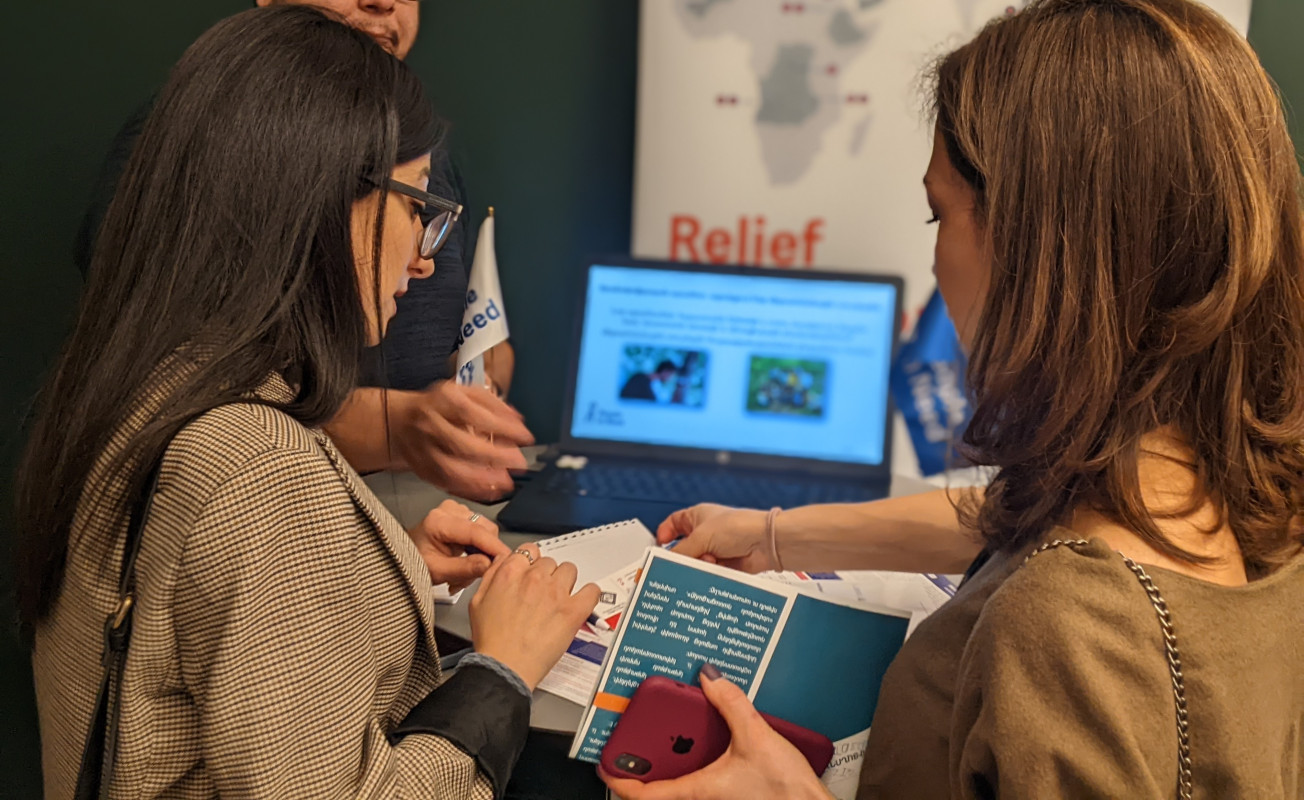
Resilient Civil Society in the Eastern Partnership Region
Emphasising the importance of Civil Society Organisations (CSOs) in representing people's needs, influencing systemic changes, and identifying hidden and significant societal problems, we continually engage civil actors who contribute to these efforts as direct witnesses in their communities.
People in Need is implementing a multi-country project titled "Resilient Civil Society in the Eastern Partnership Region", funded by the Directorate-General for Neighbourhood and Enlargement Negotiations (DG NEAR). The project aims to strengthen the role of CSOs as resilient, inclusive, and trusted governance actors advancing the democratisation process in the Eastern Partnership region. The project seeks to empower CSOs to become more effective protectors of civic space and drivers of democratisation, reform, and recovery processes in the Eastern Partnership region. The 24-month project will target at least 20-24 CSOs from Armenia and Moldova.
Within the project, PIN provides capacity development, financial support, and facilitation of national and regional networking, as well as cross-learning opportunities to small formalised CSOs, grassroot organisations, and emerging CSOs in Armenia.
The project's sub-grants are co-financed by the Ministry of Foreign Affairs of the Czech Republic.
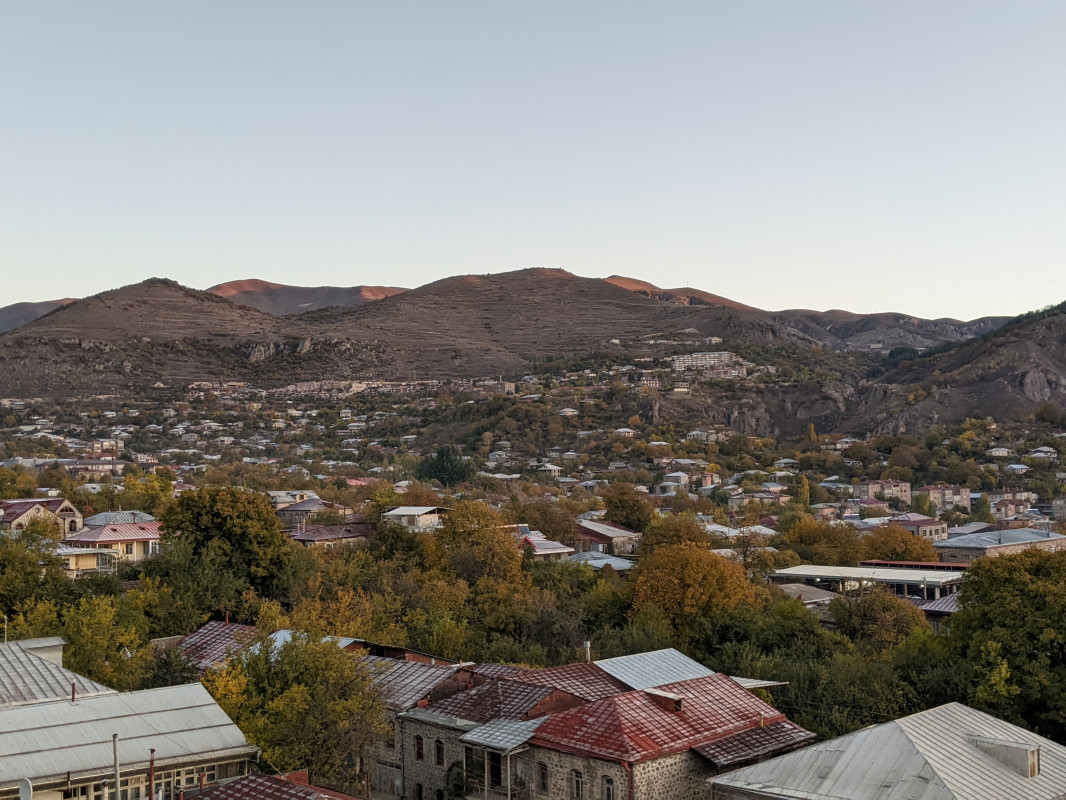
Partnerships for Syunik – Enhanced Community-Based Social Services
The European Union funded Partnerships for Syunik – Enhanced Community-Based Social Services project, implemented by People in Need, in partnership with WINNET Goris development foundation and Armenian Caritas, contributes to developing a more resilient system of social protection in all 7 communities of the Syunik region. The project also supports sustainable financing of community-based social services that better serve the needs of the country’s most vulnerable people, thus reducing poverty, inequality, and vulnerability.
Within the project’s framework aimed at sectoral reforms, we closely cooperate with the Ministry of Labor and Social Affairs, the Ministry of Territorial Administration and Infrastructure, all 7 municipal governments of the Syunik region, local civil society organizations (CSOs) and active groups. We also work with consortium partners in several directions, providing quality community-based social services, combining the needs-based capacity development of local CSOs, technical support, and piloting new funding models.
As a result, CSOs and local self-government bodies will jointly develop sustainable mechanisms for participatory planning and delivery of community-based social services according to the strategic directions of the Ministry of Labour and Social Affairs.

Enhancing Well-being for Older People and People with Disabilities
To support older people and individuals with disabilities, People in Need (PIN) Armenia - with funding from the UNHCR - launched a project in the Syunik, Shirak, Tavush, and Lori regions of Armenia with the target of Goris, Verishen, Amasia, Akhuryan, Berd, Noyemberyan, Vanadzor, Alaverdi and Stepanavan communities.
The project aims to enhance the social and psychological well-being of older people and people with disabilities affected by the conflict in Nagorno-Karabakh and consequential displacement. To achieve this, PIN is providing needs-based support and social activities in the remote regions of Armenia.
Following social workers' assessments, the most vulnerable older individuals and those with disabilities receive support to meet their urgent basic needs, including food, hygiene, and other specific requirements. They will receive one-time assistance for food and hygiene, and more assistance based on the identified needs during the assessment.
Beyond aid provision, PIN helps break the isolation of targeted groups by involving them in social events. The project aims to assist approximately 200 older individuals and people with disabilities, including local residents and displaced people from Nagorno-Karabakh.
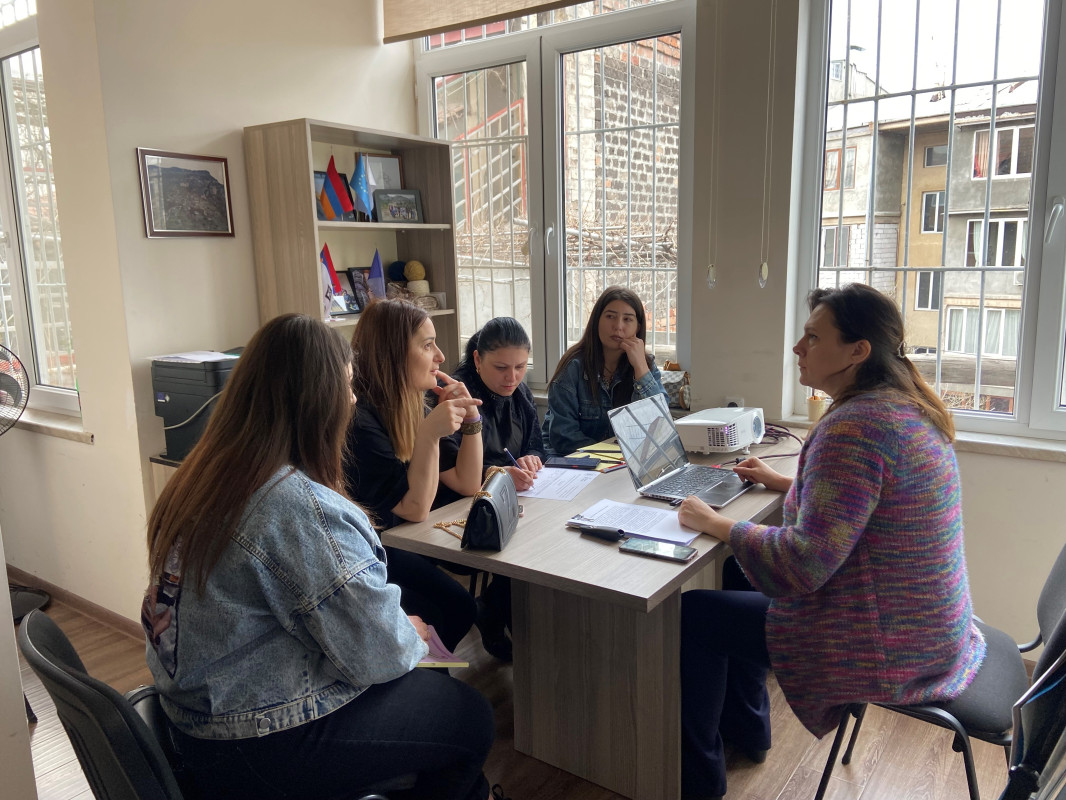
Supporting vulnerable individuals with professional development in Armenia
The six-month project aims to provide beneficiaries with professional opportunities to which they might not otherwise have access. Project activities are intended to lead to a stable income through permanent employment or the creation of an individual business.
PIN is working with four beneficiaries recommended by the Yerevan Municipality. These individuals specialise in cooking, sewing, hairdressing and nail care. PIN is working with each of them to create a small business and ensure access to a decent livelihood.
After project participants establish their businesses, PIN will provide them with three months of consulting based on practical problem-solving and the requirements of day-to-day business management.

Resilient Civil Society
PIN Armenia is involved in humanitarian assistance to affected households in the most vulnerable areas; however, many households have still experienced a loss of income, a lack of physical safety, and challenges in accessing social services when needed most. PIN recognises the crucial role local CSOs play in supporting civilians affected by the constant pressure of further military aggression and their role in mitigating the risks of further humanitarian disasters and danger.
This project aims to address the immediate security, social and livelihood needs of the most vulnerable groups, focusing on civilians in specific border areas, to mitigate the impacts of the conflict. Three CSOs - Pahapan, Mission Armenia, and WINNET Armenia received sub-grants to work with affected vulnerable groups in the border areas of Gegarkunik, Vayots Dzor, and Syunik.
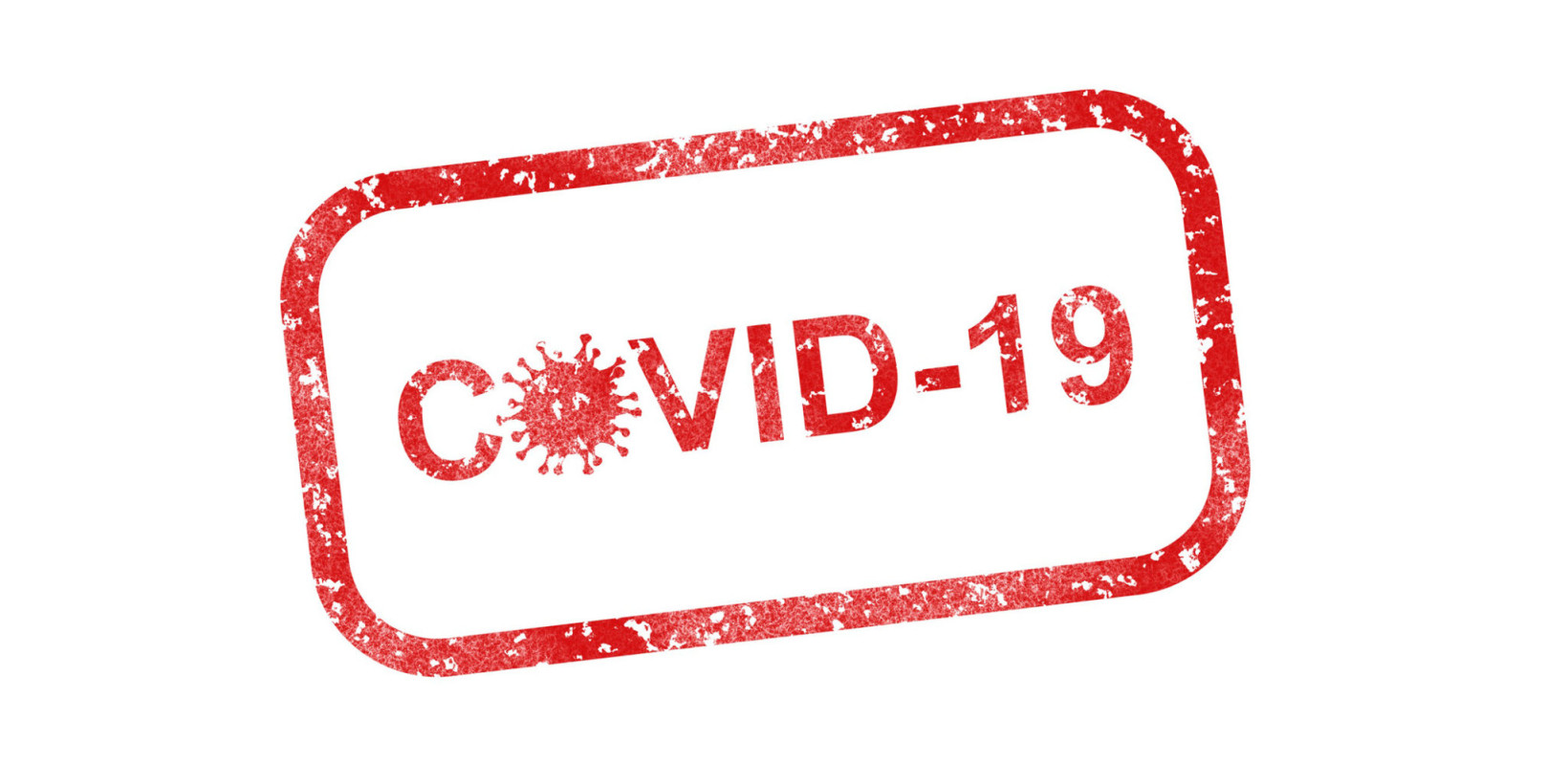
EU COVID-19 Solidarity Programme for the Eastern Partnership
PIN recognises the critical role local civil society organisations (CSOs) and independent media play in service delivery, community mobilisation, awareness raising, policy engagement, and advocacy for the protection of human rights and civic freedoms during and after the pandemic. We will support the CSOs and other civic actors to mitigate the impact of COVID-19 on vulnerable populations by empowering them with services and access to accurate information.
PIN will capitalise on its in-depth field-level knowledge to support CSOs that focus on community-level initiatives, watchdog programmes, and local independent journalism. Our partners NHC and AFEW are specialised in activities to improve human rights protection for responsible persons in closed institutions and key populations at risk for public health concerns like HIV, TB, and viral hepatitis. We will provide grant support to NGOs working with these beneficiaries and assist them in developing strengthened monitoring, reporting, advisory, agenda-setting, and advocacy work.
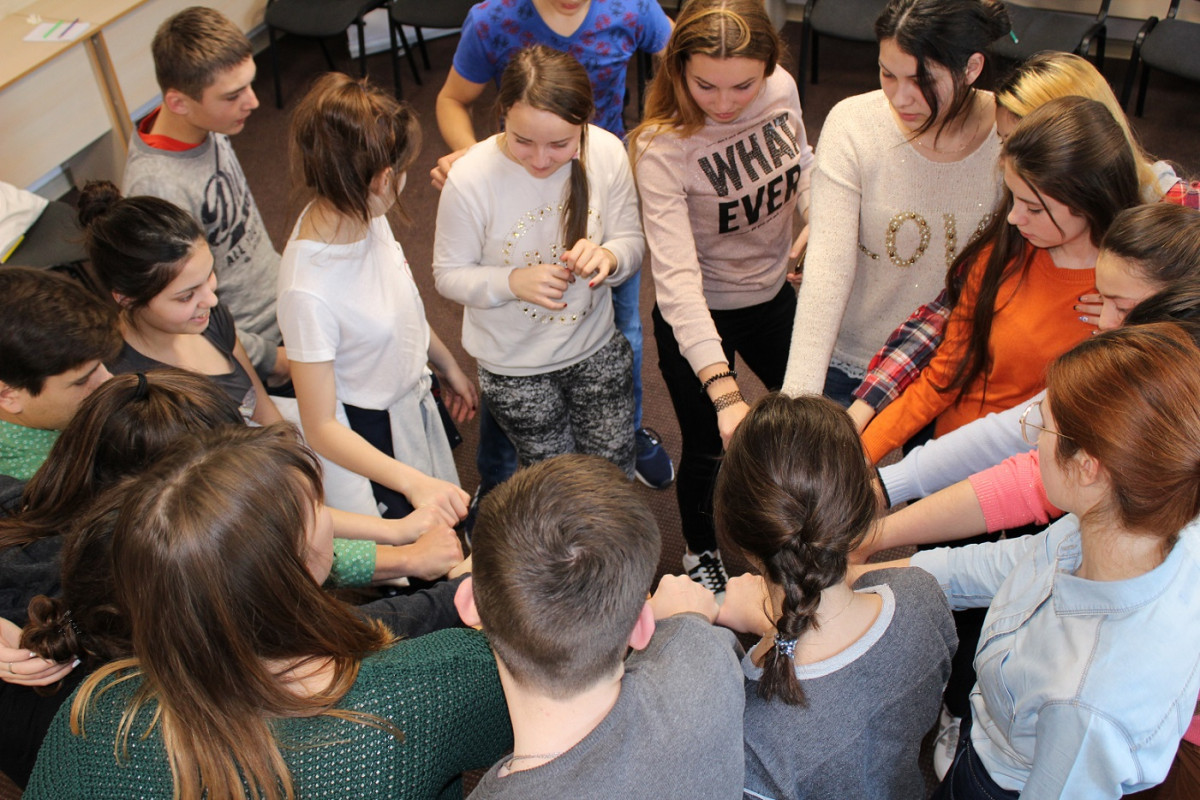
Civil Society Actors as Drivers of Change in South Caucasus and Moldova
The project team will work closely with selected civic initiatives to develop a strategy for each of them regarding their path and position in the society. They will take part in trainings, coaching, mentoring, consultations, study visits, fellowships; will establish or improve connections with their supporters and volunteers; and will network with peers and partners in Armenia, Georgia or the Republic of Moldova and abroad.
The selected civic initiatives will have the opportunity to get support for research and building thematic expertise, as well as get involved in policy dialogue at local, national or international level. During their participation in the project, the newly established civil society organisations will find out if, why and how to engage with the private sector for potential cooperation, and will find effective, transparent and accountable ways to self-organize and manage resources. The project will ensure access to funding opportunities for the internal development of selected civic initiatives or for carrying out campaigns designed by them.
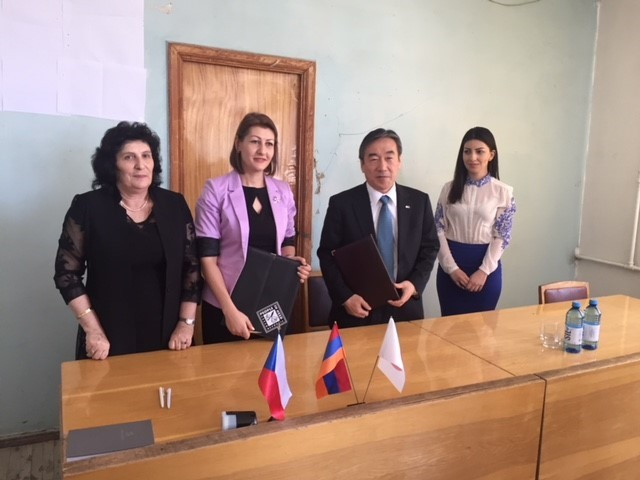
Mobile care service for elderly
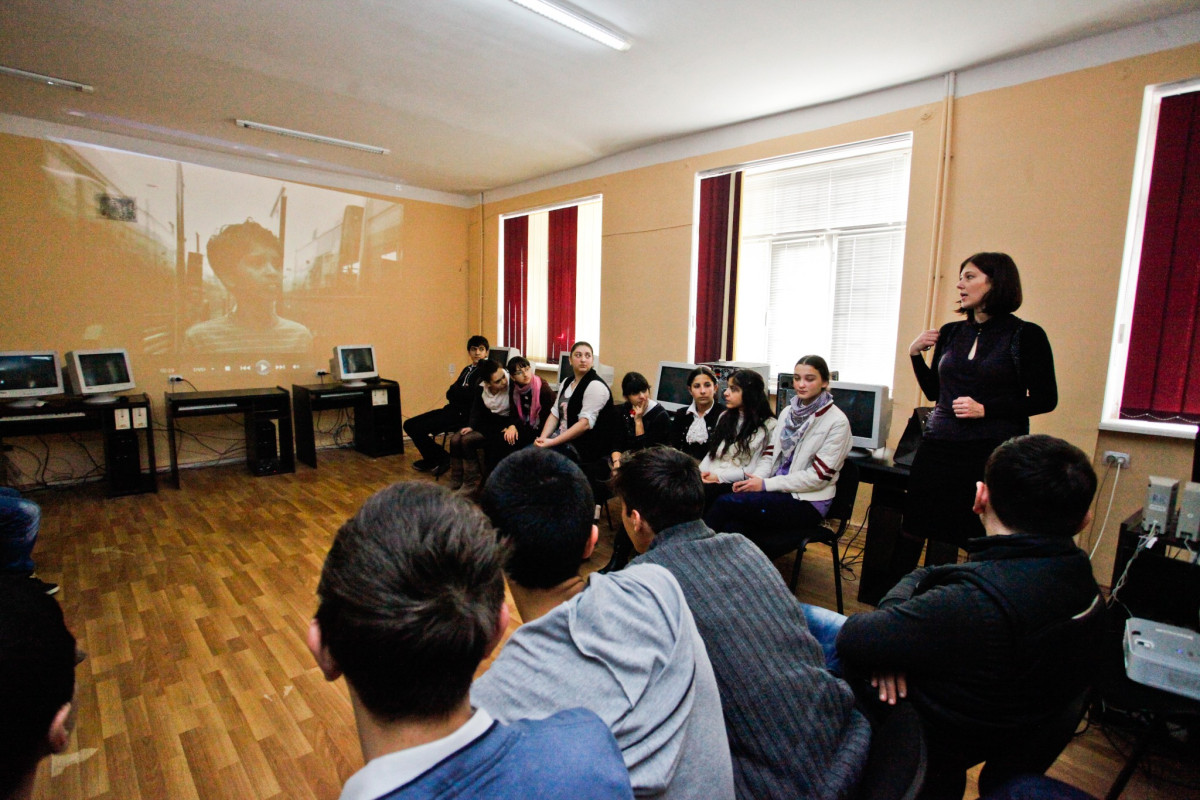
Education through documentary films
As part of a project aimed at preventing illegal migration and trafficking, People in Need worked intensively with secondary school and university students in 2009 to 2011, organizing dozens of discussions and seminars to disseminate information on the dangers of illegal migration. In 2012, PIN started working with teachers in Armenia, introducing the One World in Schools methodology based on documentary films. It draws on the experience of the One World in Schools programme, run by People in Need in the Czech Republic since 2001.
The One World in Schools methodology combines documentary films, other audio-visual aids and follow up activities and helps teachers to teach more effectively about complex social topics, such as human rights, democracy values, and conflict mediation or prevention.
To date, the methodology is used in 164 schools by 200 teachers trained in teaching through documentary films. The methodology was recommended by the Armenian Ministry of Education and Science and in 2014 it was spread among all Armenian social science teachers, based on cooperation between People in Need and the National Institute of Education. The methodology was incorporated into the teachers’ professional development plan.
The area of education also includes strengthening of general public awareness of topics such as human rights, migration and human trafficking. Information is disseminated to people through media campaigns, which resulted in dozens of articles and TV reports on the issues of migration from 2009 to 2014.
In 2012-2013, People in Need also supported initiatives in remote regions in Armenia (and also Azerbaijan and Georgia). Five teams organized ten small scale documentary film festivals in their communities. The festivals screened documentaries on crucial issues (conflict transformation, human rights) for the audience of more than 3000 people. All screenings were followed up by a debate that enabled the local communities to open dialogue on these crucial issues, some of which had been taboo before. Since 2014, four of these festivals in Armenia continue screening films without People in Need’s support. Moreover, extensive videotheque of documentary films in Armenian is available for everybody who wishes to organize a single screening and is mostly used by university teachers or activists.
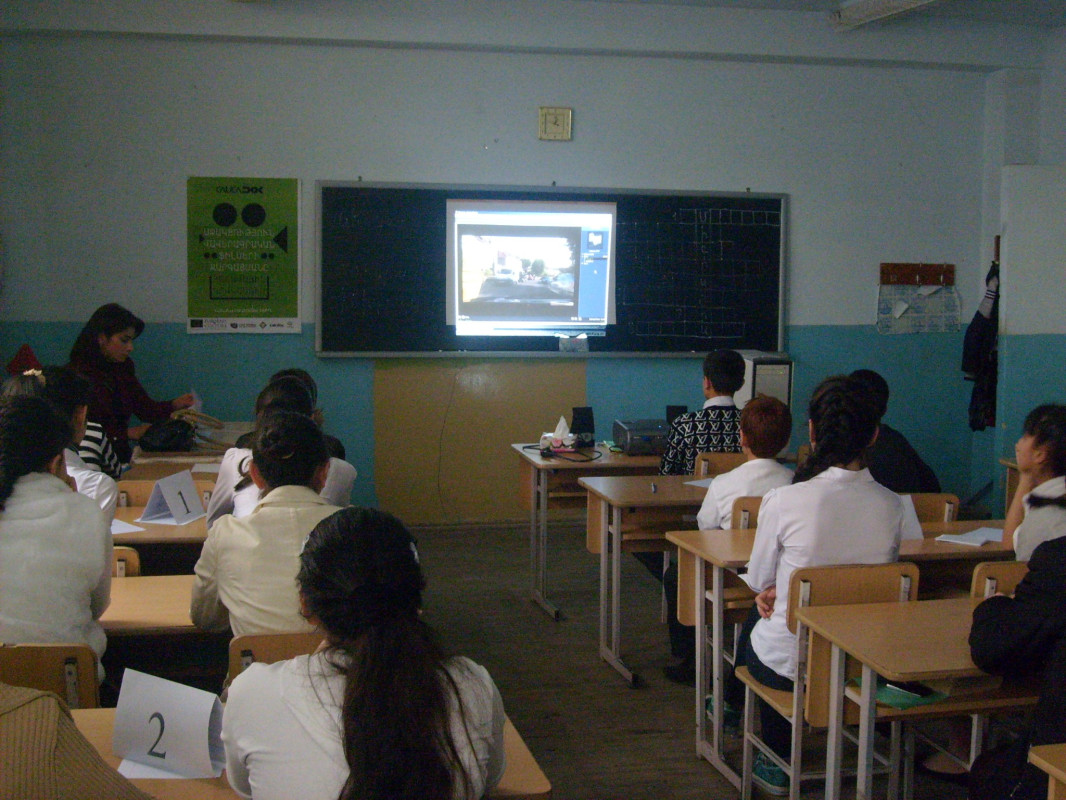
Prevention of child trafficking in Armenia
The project focused on prevention of child trafficking by increasing awareness, building capacities of individuals and institutions and direct aid to vulnerable groups of the population.
The main project activities were working with primary school teachers and with children. Child trafficking awareness training and discussions were organised for both of these groups. We held a summer school for 25 future teachers who were to become experts in the issue of child trafficking and were be able to continue in training other teachers, but mainly children too.
As part of the awareness campaign, a series of performances took place on the topic of child trafficking, promoting a helpline service amongst other things. Our partner organisation focused on distributing information amongst blind and partially-sighted children and among deaf children, their families and educators.
Apart from schools, we also worked alongside state administration workers responsible for protection of the rights of children: we trained over 150 Yerevan city authority employees, employment agency and labour inspectorate officials and also police officers. We shared in establishing identification criteria for potential child victims of human trafficking, subsequently schooling members of the police force and state prosecution office representatives.


